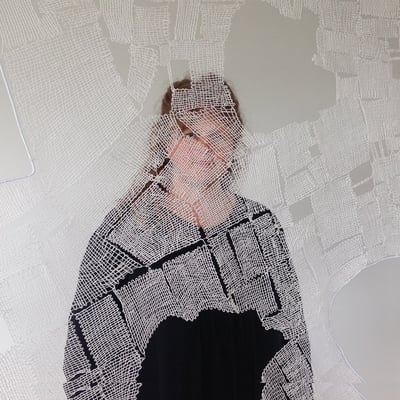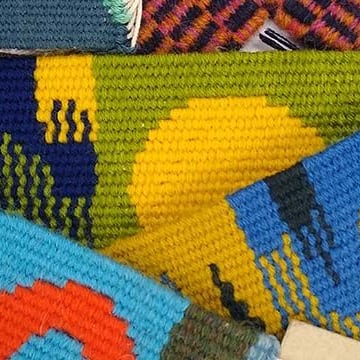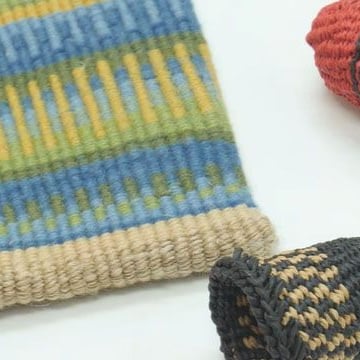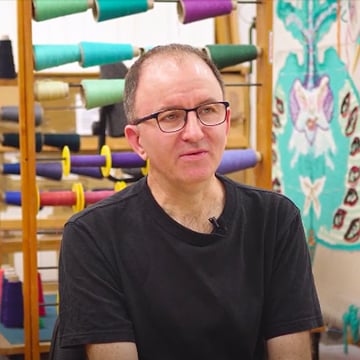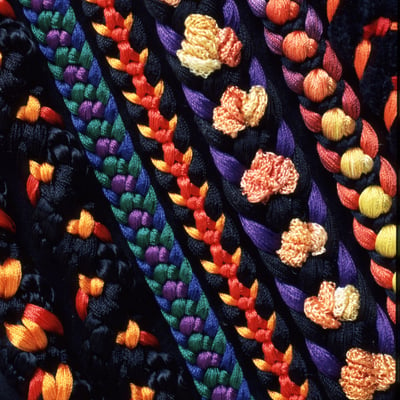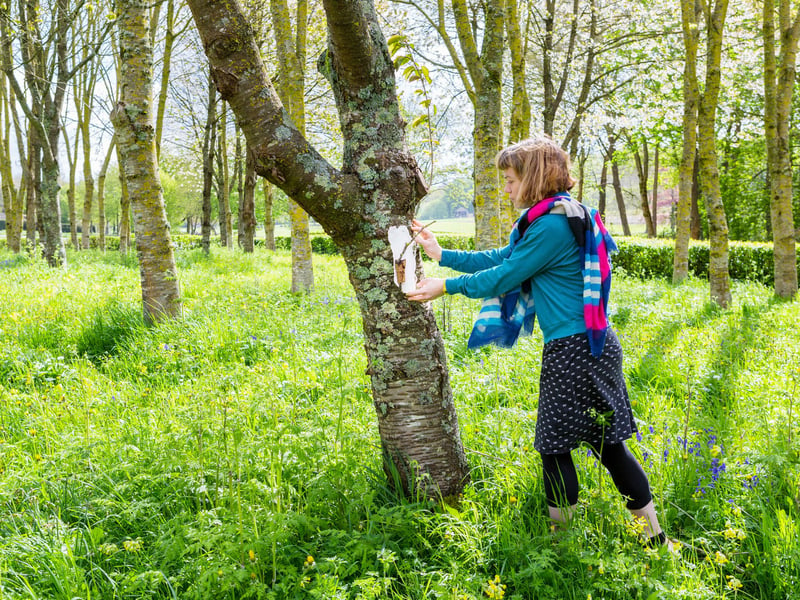A hands-on course exploring alternative ways of working with loom, warp and weft. A loom may become permanent, integral to the tapestry. Warp may be something other than textile, it may not be fixed whilst weaving. Weft may not answer to it as the dominant player. A course of questions and experiments. An opportunity to stand outside our norms, to ask what, why and how.
Working individually and as a group, we will take a no holds barred approach to our familiar structure of loom, warp and weft. We will work with all three in entirely unconventional ways to seek what it is we hold dear and we wish to return to, and where there may be new paths to follow.
You will be asked to work spontaneously and instinctively, quickly and without prior design. To hold lightly our usual rules, norms and assumptions, weave the unweavable, questioning rather than initially seeking answers.
In a series of guided experiments, we will warp up structures other than a conventional loom - frameworks which may remain as integral to the whole, designed or found. Our warp may be textile, metal, wood or plastic. Weft may be rigid, liquid, organic
The hope is for you to be left not with a finished piece or process but a fresher, clearer understanding of what really excites in handling warp and weft.
What students need to bring
- Frames (A selection of) - picture Frames (new or Old), cardboard box, wood veneers, piece of Leather, length of material or A garment your happy to cut up, sheet of acetate, metal, perspex, glass
.
- bits of wood, including driftwood
- Old magazine/ book
- bobbins (if you use them)
- drawing pins
- notebook and pen
- needles, including large tapestry needles
- any yarn/materials you might like to use for warp and weft: wools, cottons, linens, silks, nettle, jute, paper, plastics, cord, rope, Old clothes, wire, cardboard, leather
. if in doubt, bring it.
- A selection of nails
- Masking tape, double-sided tape, coloured electrical tape
- Pritt stick
- Craft knife
Available to buy
Available from tutor:
The tutor will supply some materials for a small charge payable directly on the course
Additional information
Please wear appropriate clothing/aprons for the workshop or studio, this includes stout covered footwear (no sandals or open toes).
Arrival day - first date of course
Residential students can arrive from 4pm, non-residential students to arrive by 6.45pm for registration
Student welcome, followed by dinner: 6.45pm (dinner included)
Teaching session: 8pm-9pm (attendance is essential)
Daily timetable
Course teaching: 9.15am-5pm
Morning session: 9.15am-12.45pm including coffee/tea break
Lunch break: 12.45pm-2pm (lunch included)
Afternoon session: 2pm-5pm including coffee/tea break
Teaching finishes: 5pm
Evening working: students may have access to workshops until 9pm, but only with permission from the tutor and provided any health and safety guidelines are observed.
Departure day - last date of course
Course teaching: 9.15am-3pm (lunch included)
Teaching finishes: 3pm
Residential students will need to check out of rooms by 10am.
Please note, the tutor may make slight variations to the daily timetable as required.
